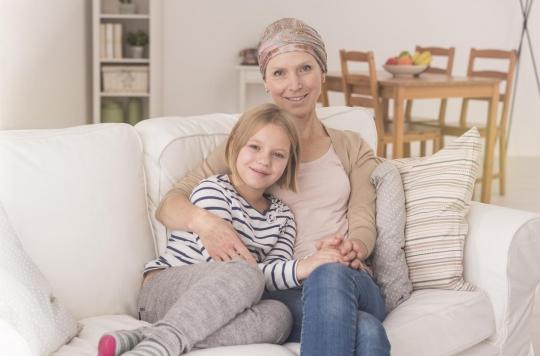The Academy of Medicine formulates proposals to facilitate the return to normal life after cancer.

Experts and health institutions are increasingly interested in the return to normal life after disease. * In a report presented on March 27 in official session, the Academy of Medicine looked into the obstacles related to post-cancer cancer, after hearing about twenty experts.
It must be said that the progress of treatment makes post-cancer more and more common. Most cancers, with the exception of the pancreas and rare forms, have seen major progress in terms of life expectancy. In 2008, it is estimated that 3 million French people had had cancer in the previous fifteen years. In 2022, this figure should be multiplied by six!
Prepare for the post-cancer phase from the start
The wise men of the rue Bonaparte begin by pointing out an ambiguity. Medically, post-cancer treatment begins when treatments are over and the surveillance phase begins. But for those affected, this transition is not always straightforward. We must integrate the idea of cure – easier after surgery than chemotherapy, for example – and accept to live no longer with an illness, but with a risk : that of a possible recurrence.
The Academy therefore calls for a systematic psychology assessment to be set up from the start of treatment, in order to explain in an enlightened manner the consequences of the disease and to prepare for follow-up during and after treatment.
A flexible right to be forgotten
Beyond this psychological aspect, very concrete problems arise for the patient. Starting with the return to work. “One in three people quit or lose their job (after a cancer diagnosis, editor’s note) against one in six in the general population “, recall the authors, who invite to strengthen the “initiatives of return to employment”, without further precision.
Another recurring difficulty: access to credit. The “right to be forgotten “, valid since 2017, ensures that no information medical is not payable by insurers 10 years after the end of processing (5 years for minors). Furthermore, the convention Aeras allow to most people with an aggravated health risk to take out a mortgage, up to 320,000 euros and up to 70 years. The Academy calls for these devices to be regularly adapted to take into account the increasingly favorable cancer prognoses.
Preservation of fertility still too rare
Last issue highlighted: fertility. Certain cancers and especially treatments (chemotherapy in particular) risk altering the ability of future former patients to have children. Citing data from the INCa from 2014, the Academy recalls that preserving fertility n / A has been offered to only one third of patients, whereas it is legally binding since the 2004 bioethics law. The authors therefore recommend systematizing fertility care, whether it is a question of preserving the gametes ( sperm or oocytes) or, before puberty, germ tissue.
Academicians finally note the fragmented and disorganized nature of post-cancer care, which is the source of many concrete difficulties. “From this work it emerges that for more than 10 years the notion of taking charge of patients after their cancer has been taken into account separately by the various supervisory bodies and in numerous legislative texts hence, no doubt, theThe difficulties of implementation “, they conclude.
* We speak of “remission” in case of disappearance of observable signs of cancer, and “cure” after five years of remission. It is then a simple convention, because the risk of recurrence is not completely zero and depends on the initial form of cancer.
.















